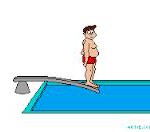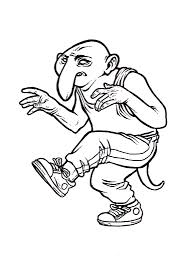Hi again. Well, I started writing. What a relief! I’ll say more about that in a sec, but to make it slightly relevant to this blog, let me tell you what I just learned about “choice.” Last post there was a great dialogue about the “choice” model of addiction. I ended my post arguing that the choices addicts make are highly irrational, based on biases and attractions already inscribed in the brain. Thus….we need to think about making choices in a new way, a way that has nothing to do with logic.
So writing is an intentional act, right? Sitting down to write something, whether a book or an email, is a choice people make. It’s clearly not a disease, it doesn’t happen unconsciously, and it involves deliberation, planning, and so forth.
In that way, writing is something like the decision to take a drug or a drink. And it’s also something like the decision to quit — choosing not to take a drug or drink. (though it’s always harder to choose not to do something than to do something — because the goal is not right there in front of you)
 My choice to sit down and write involved a great deal of anxiety, self-scolding, reflection, and many many attempts before I actually pulled it off. Sound familiar?
My choice to sit down and write involved a great deal of anxiety, self-scolding, reflection, and many many attempts before I actually pulled it off. Sound familiar?
I had to sneak up on myself. And that’s very often the way addicts manage to quit. I had to  wait until I wasn’t concentrating. It was too difficult to sit down and force myself to write, to stare myself in the face. Rather, I was en route to doing something else, making dinner or something, when I stopped at my computer and wrote a few sentences on the fly. Very little deliberation, actually, in the moment of doing it.
wait until I wasn’t concentrating. It was too difficult to sit down and force myself to write, to stare myself in the face. Rather, I was en route to doing something else, making dinner or something, when I stopped at my computer and wrote a few sentences on the fly. Very little deliberation, actually, in the moment of doing it.
But that was enough. An hour later I stopped by my computer and started to revise the….ONE PARAGRAPH. There’s already one paragraph on the screen! I wrote that. And it’s not too bad. Paragraph 2 flowed from paragraph 1, as you’d hope, and since then it’s been easier and easier.
So here was a deliberate and important (to me) choice that changed the direction of my life, the way I spend my time. And I had to be clever, resourceful, sneaky (toward myself), not staring myself in the face — in order to make it. The parallels with quitting are obvious. And the choice to take drugs is not unlike the choice to quit, in that it can happen on the fly, without really focusing on what you’re doing.
The coolest thing I noticed is how the activity of writing grew on itself. Once I had one paragraph on the screen, I felt that I could do it. I felt that I was finally moving. Then the second paragraph was so much easier. And thirty years ago, my second week of recovery was a lot easier than my first.
By the way, this is all about the emergence of self-trust, a topic we discussed in some detail several posts ago.
To say that addiction is a choice is to say very little. The same goes for recovery. Choices come in many shapes and sizes. The crucial thing to remember about making choices is that they usually involve a mixture of deliberate  intention, situational factors, unconscious processes (like biases), emotional readiness, and momentum — that sense of moving forward. Some choices, including the choice to quit drugs, depend a lot on momentum. Which is why it’s so hard to get started, and why it’s so useful to sneak up on yourself, don’t think too much, just do it, then let nature take its course (with a little help).
intention, situational factors, unconscious processes (like biases), emotional readiness, and momentum — that sense of moving forward. Some choices, including the choice to quit drugs, depend a lot on momentum. Which is why it’s so hard to get started, and why it’s so useful to sneak up on yourself, don’t think too much, just do it, then let nature take its course (with a little help).

Leave a Reply to Richard+Henry Cancel reply